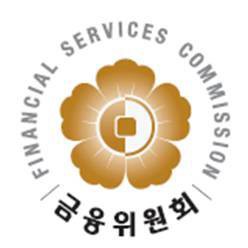On July 30th., a long-awaited plan was finalized to privatize Woori Financial Group, South Korea’s second-biggest financial services provider by assets. The Public Fund Oversight Committee, which oversees public fund management, announced the road map to sell a 57 stake owned by the government in Woori Finance Holdings through a sale or a merger. The deal is expected to close by December 2010.
Background
Currently, the state-run Korea Deposit Insurance Corporation (KDIC) owns a 57-percent stake in Woori Finance, which is valued at 6.84 trillion won or $5.77 billion as of end-June, 2010. In the aftermath of the Asian financial crisis, the government injected public funds worth 12.8 trillion won to bail out Woori Bank and several financial firms that later consolidated into the first financial holding company in Korea in April 2001. In an attempt to recoup public money, the KDIC has gradually sold its stake along with four block sales between September 2004 and April 2010.
The government has emphasized its commitment to privatization of Woori Finance with an aim to redeem taxpayers’ money used to rescue the group from the 1997 financial woe. Considering that about 10 years has passed since the injection of the public funds, the privatization of Woori Finance has been a task that should be promptly headed forward. Several delays in the announcement of the privatization plan have sparked concerns among banks and market participants.
Clearing those concerns, the privatization plan was finally announced and government officials reaffirmed that the architecture of privatization will be left up to the market.
(July 30th Press Conference)
Sales Process
Woori Financial Holdings is the 2nd largest financial company by asset with 10 subsidiaries including Woori bank and Woori Investment & Securities. The government has decided to proceed with the sale of two of Woori’s subsidiaries, Kyongnam or Kwangju banks simultaneously with the sale of the holding company. There has not been much synergy between the two subsidiary banks and the holding company since their electronic system has not been fully integrated with the other subsidiaries and each of them has served different clients respectively; therefore, selling the two local banks separately from the holding company is not problematic. It helps to reduce the size of a potential sale, accelerating the privatization.
Although the government also considered selling Woori Investment & Securities in the same way above, Woori Investment & Securities will be sold along with the financial group in order to maximize the sales value. It is the country’s top brokerage manager responsible for the Initial Public Offerings, M&A advisory, and debt financing, generating considerable synergy effect with the holding company and other subsidiaries. It is highly likely that selling it separately would undermine the overall value of the Woori Group. To reduce the risk, the government determined not to do it.
In terms of the sales in general, four ways are on the table: separate sale of stocks, block sale, simple M&A and merging after partial sale. Min Sang-kee, co-chairman of the Public Fund Oversight Committee emphasized that in terms of sales architecture, any type of architectures that potential bidders may propose can be accepted. As Woori’s ownership is to be handed over to the private sector, the government is less likely to intervene in the management of the group. Then, cancellation of MOU with KDIC at an early stage will come true.
The overall move is expected to encourage a number of domestic and foreign investors to join the competitive bidding, which many believe will help develop Korea’s banking industry. Government officials asserted that there will be no discrimination between foreign and domestic investors as long as they meet basic legal requirements. Based on the Financial Holding Company Act, fair, flexible, and transparent process would attract many potential bidders.
Three advisory firms – two local firms and one foreign firm – will be selected to manage the sales procedure and shortlist preferred bidders by the end of this year. Among candidates, the final winner will be chosen through a two-round inspection open to Korean and foreign companies.
In September, a lead manager for the sales will be chosen. A professional in industry claimed that, as this plan unveiled, overseas Investment Bank such as Goldman Sachs, Merrill Lynch, UBS and Deutsche Bank came to have interest in the position as well as domestic companies due to the enormous size of M&A. To get a good score on the “League Tables”, where IBs are classified by the volume of deals they have worked on, many might want to take this lead manager position.
might want to take this lead manager position.
The next step to evaluate bidders and choose a preferred bidder among candidates can be a long way to go.
Conclusion
For a long time, the Korean government has been the primary investor in Woori Financial through the KDIC. This long-anticipated project is likely to trigger a realignment of the domestic financial sector. The deal would reshape the landscape of the banking industry.
Lee, Ki Yeon (kiyeon.m.lee@gmail.com)

